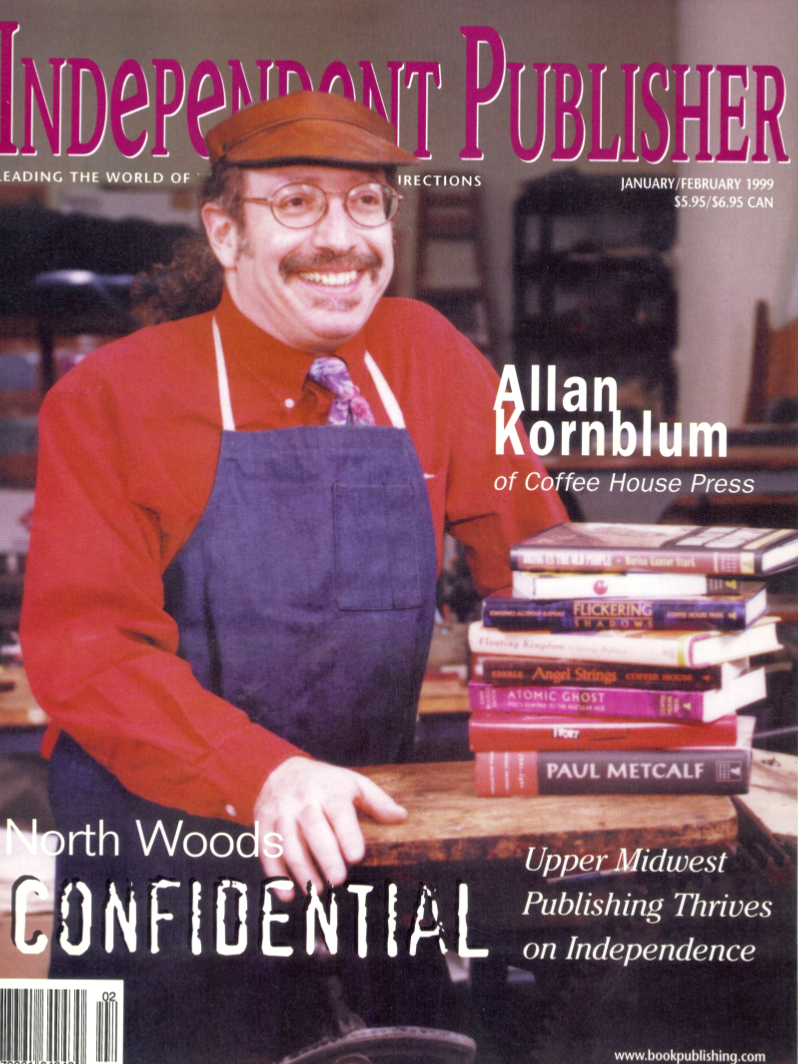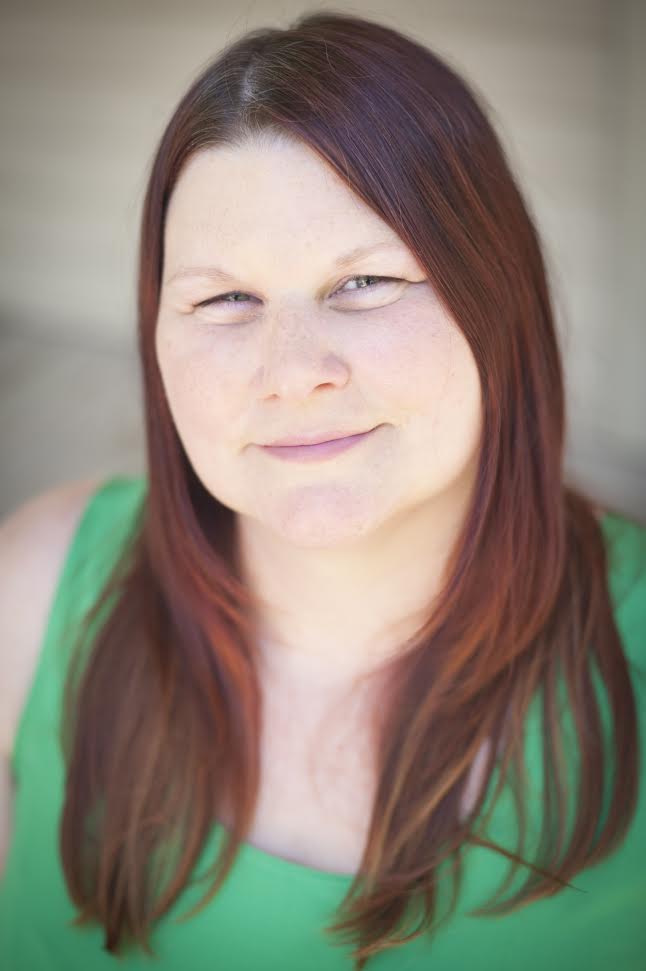Feature
Spotlight on the Independent Publisher Book Awards
Recognizing “IPPY” Excellence for 21 Years
The IPPY Awards were founded in 1996 with the goal of recognizing and promoting independently published books. For the past twenty-plus years, that goal has remained intact - despite changes in our means and methods, despite radical changes in the publishing industry, despite changes to our entrant base - we are still hustling and working to promote the year’s best independently published books. Going back to our awards mission statement and guidelines, here’s why we do it: “To recognize the deserving but often unsung titles published by independent authors and publishers, and bring them to the attention of booksellers, buyers, librarians, and book lovers around the world.”
Yet things have changed in the publishing industry, and in the face of some of those changes, we find it necessary to reiterate our mission statement and reason for being. As the inaugural IPPY contest was accepting entries, small presses struggled to get any media coverage, and self-publishing consisted of a few visionary authors and “vanity” presses. Today, indie publishers continue to find new ways to thrive and create, while self-publishing has exploded in an unprecedented way. This explosion has brought on an onslaught of services aimed at self-publishers, from production and design services to marketing packages and new awards contests. Some are offered by supportive organizations, but some are perceived as borderline exploitative. In all the noise surrounding this booming industry, we want to reiterate our history and purpose.
 Our awards were started back in 1996 when Small Press (the original name of Independent Publisher) was hearing a lot of criticism lobbed at major book awards contests and was encouraged to produce its own “best of the year” list. This made sense, as we were one of the only voices encouraging indie presses at the time (the Jan-Feb 1996 issue contained over 100 reviews of indie press books!), and one of the few places where indie books were getting any coverage. Thankfully, today, indies are far better represented and are occasionally even covered by mainstream, but that wasn’t always the case. Much like today, the famous awards and year-end “best of” lists recognized the same ten bestsellers/most marketed books by the large publishing houses.These lists were - and still are - useful and beloved in many ways, but by their nature are exclusive and limited in scope. Where was the love for the most creative but perhaps not as mainstream book? Or recognition for quality books about important topics from nontraditional publishers? There was an absence of recognition for indie publishers, who wanted to be lauded for successful “niche publishing” and awarded in their own industry among their peers. As the natural fit, Independent Publisher stepped in to fill this role.
Our awards were started back in 1996 when Small Press (the original name of Independent Publisher) was hearing a lot of criticism lobbed at major book awards contests and was encouraged to produce its own “best of the year” list. This made sense, as we were one of the only voices encouraging indie presses at the time (the Jan-Feb 1996 issue contained over 100 reviews of indie press books!), and one of the few places where indie books were getting any coverage. Thankfully, today, indies are far better represented and are occasionally even covered by mainstream, but that wasn’t always the case. Much like today, the famous awards and year-end “best of” lists recognized the same ten bestsellers/most marketed books by the large publishing houses.These lists were - and still are - useful and beloved in many ways, but by their nature are exclusive and limited in scope. Where was the love for the most creative but perhaps not as mainstream book? Or recognition for quality books about important topics from nontraditional publishers? There was an absence of recognition for indie publishers, who wanted to be lauded for successful “niche publishing” and awarded in their own industry among their peers. As the natural fit, Independent Publisher stepped in to fill this role.
We started by recognizing books in the number of categories that made the most sense based on the number of entries (325 in that first year) and based on a judge’s perspective. As the judges quickly discovered, if you don’t have enough suitable categories, you end up having to make impossible decisions, like deciding whether a meaningful but concise children’s book should receive lower points in the “content” criterion as opposed to a thoroughly researched history of diseases. In our inaugural contest, with the number and nature of our initial entrants, this translated to 20 some categories.

Over the years, however, as entrants grew, certain categories became unwieldy, and judges often argued that the only fair way to resolve the rankings was to split the category up. For example, consider the Fiction category. Judges had to consider a fast-paced, action-packed but cleanly resolved thriller with a slow-moving but poignant lyrical novel reflecting on grief. In some cases, the disparity between the books made it almost possible to consider them in the same category - a fact that many entrants were quick to point out. And since we were never trying to replicate a pared-down ten-category awards program like the National Book Awards, but rather to provide indie publishers a chance to be recognized for their work in a relevant category among their peers, expanding the categories became the natural answer. As a result of 20 years of feedback from entrants and judges, our contest grew to the whopping 80-plus subject categories we have today.

It may seem counterintuitive to award 300 medalists a year in a best-of competition. Yet when your entry pool is 5,500 entries from scores of amazing authors and publishers, whittling that number down to 300 is darn near impossible. And when your entrants range from a chapbook of poetry to a five volume history of World War I, you come to see the necessity of awarding people in their specific genre or field to truly reward their accomplishments. We’ve been gratified to find that the number of medalists does not detract from the meaning of the award, as the ceremonies we host every year at BookExpo attract more winners eager to celebrate their recognition among their peers. And, if our talented entrants continue to expand the range of their creativity in the coming years, inventing and submitting new genres of books (looking at you, coloring books), we will continue to evolve to best recognize their work.
In order to operate our contests, we do charge entry fees. Many argue, from their vantage point as indie authors, that budgets are tight, high entry fees are difficult for authors to cover, and that we shouldn’t be charging much. While we agree and completely respect the first two points (to the point that we discourage indie authors with incredibly tight budgets from relying on book awards as their sole marketing plan, or sometimes discourage them from entering at all), we take issue with the third.
 It seems that with grants and non-profits making up so much of the literary world, indie authors have become wary of contests that cannot rely on a hefty grant or fund, but that instead must run as a business. Our primary issue with this argument is that we are human beings who need a roof over our heads and food on the table. While entry fees are necessary for the existence of our contest, making money is not the goal. Our goal for twenty plus years has been to operate an awards contest that promotes and validates the work of indie authors and publishers, and to run a healthy business. Finances to run a contest that requires year-round administration and support for entrants include, but are not limited to: office space, bills to keep the lights on, three full-time employees as well as seasonal and part-time help to process the flow of book entries, merchandise to distribute to winners, marketing and advertising costs, venue costs and catering for award ceremonies worthy of the medalists, and on and on. We simply have to exist and get paid. We work hard all year round to conduct this contest and promote the work of independent authors and publishers, and the entry fees are an unfortunate but necessary part of doing so.
It seems that with grants and non-profits making up so much of the literary world, indie authors have become wary of contests that cannot rely on a hefty grant or fund, but that instead must run as a business. Our primary issue with this argument is that we are human beings who need a roof over our heads and food on the table. While entry fees are necessary for the existence of our contest, making money is not the goal. Our goal for twenty plus years has been to operate an awards contest that promotes and validates the work of indie authors and publishers, and to run a healthy business. Finances to run a contest that requires year-round administration and support for entrants include, but are not limited to: office space, bills to keep the lights on, three full-time employees as well as seasonal and part-time help to process the flow of book entries, merchandise to distribute to winners, marketing and advertising costs, venue costs and catering for award ceremonies worthy of the medalists, and on and on. We simply have to exist and get paid. We work hard all year round to conduct this contest and promote the work of independent authors and publishers, and the entry fees are an unfortunate but necessary part of doing so.

What is it like getting so many different entries each year? First and foremost, it has solidified our commitment to this industry and the talented people in it. Since our inaugural contest to now, we’ve seen thousands of books, and the beautiful thing is - they keep getting better. Our entrants are consistently putting out truly moving, entertaining, powerful books that exemplify what indies are capable of. When we started, small press books were considered sub par to the big house books, from their content to their execution. They’ve come a long way to today, where they are given a lot more respect and are sometimes even awarded major publishing prizes. Self-publishers too have made a lot of progress, combatting the stigma that dismisses their books as inferior or unprofessional. It has been a joy to work with such innovative and creative groups of people, and to witness the success indies have carved out for themselves in the past several years.

A history of the IPPYs wouldn’t be complete without acknowledging the people who have kept it going. Our book awards team consists of three full-time employees as well as a part-timer to help with the massive influx of books around deadlines. Awards Director and beloved IPPY Hippie Jim Barnes has been with the awards since the second year, passionately promoting indie books - and thoroughly enjoying every minute of it. As the grandson of a bookseller and the son of a librarian, you could say books are in his blood. When he is not managing the awards and judging entries, he is working hard on the farm he shares with his wife Ruthie - currently home to four horses, nine dogs, and twelve cats.
 Awards Coordinator Amy Shamroe has been helping run the show since 2007, when she left full- time bookselling at a local independent store to join the book awards team. Over the last ten years, she has been actively involved in initiating and overseeing many of the changes that have kept the awards current and relevant to the industry. She puts in long hours managing the flow of the entries and judging books, and managing the Facebook page. When she is not reading, she is working for the community as a City Commissioner in our beautiful town of Traverse City, Michigan, or heading up one of the many organizations she belongs to, like the local Friends of the Library.
Awards Coordinator Amy Shamroe has been helping run the show since 2007, when she left full- time bookselling at a local independent store to join the book awards team. Over the last ten years, she has been actively involved in initiating and overseeing many of the changes that have kept the awards current and relevant to the industry. She puts in long hours managing the flow of the entries and judging books, and managing the Facebook page. When she is not reading, she is working for the community as a City Commissioner in our beautiful town of Traverse City, Michigan, or heading up one of the many organizations she belongs to, like the local Friends of the Library.
Lauren White started as an intern back in 2013 after earning degrees in English and History at University of Michigan. In her three years with the awards team, she has helped judge books, manage the awards websites and Twitters, and aid publishers in the entry process. As Awards Account Manager and Assistant Editor of IP, she now lives in New York City, where she is closer to the publishing action.
 Kim Ross heroically unpacks and shelves all of your beautiful books as the resident book awards processor. She got started in the book world early, working at the beautiful Davis-Kidd Booksellers (RIP) down in Nashville. After a stint in a branch store in Jackson, Tennessee, Kim got homesick and returned to Traverse City, where she worked at Borders until the bitter end. She did a few more brief stints in bookstores and libraries before ending up with us, where she puts her copious experience to good use!
Kim Ross heroically unpacks and shelves all of your beautiful books as the resident book awards processor. She got started in the book world early, working at the beautiful Davis-Kidd Booksellers (RIP) down in Nashville. After a stint in a branch store in Jackson, Tennessee, Kim got homesick and returned to Traverse City, where she worked at Borders until the bitter end. She did a few more brief stints in bookstores and libraries before ending up with us, where she puts her copious experience to good use!
The book awards team would like to thank all the entrants who have made our work possible over the last twenty-some years. Cheers to another year of promoting your excellent books!


